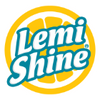Vinegar isn't always the solution
These days, it seems like there's always a trendy new cleaning hack that's hailed as THE cleaning agent to have on hand for any mess. And we're sure that at some point, you've heard or read about the power of vinegar. While vinegar can be used to clean a lot of different surfaces, it's important to know that vinegar is not an all-purpose cleaner.
Some surfaces and materials can be damaged by vinegar, so why not save yourself from cleaning regrets by never cleaning these things with vinegar:
- Dishwashers, Fridges, and Washing Machines: Ever heard of the cleaning hack of placing a cup of white vinegar in your dishwasher? If so, definitely disregard this tip, as vinegar's high acidity level can cause some severe internal damage by breaking down the rubber gaskets, seals, and hoses in your appliances, leading to costly damage! Plus – if vinegar mixes with salt that's been left on your dishes, it can discolor metal pans, flatware, and mixing bowls.
- Grout: Over time, vinegar's high acidity can wear away the seal on grout and tile, which can cause them to deteriorate faster.
- Pet Messes: Vinegar may remove the scent for you, but not for your pets! When the smell still lingers for your pets, they'll continue to be drawn to that area, resulting in more messes. Yikes! It's best to use an enzymatic cleaner like citric acid to kill both the odors for you and your pets.
- Carpets: Carpets made of natural fibers, such as wool or silk, can be pretty delicate and can't handle excessive exposure to very acidic products. Using vinegar on these types of carpet can permanently damage the fibers and ruin your carpet. A citric acid powder is a great cleaning agent for reversing browning on carpets and upholstery. It can also be used to adjust the pH of the carpet before dyeing.
- Kitchen Knives: The acidic content in vinegar can corrode the metal blades and dull knife edges.
Ultimately, the acetic acid in vinegar is a lot more aggressive and corrosive than citric acid. We think it's time you switch to citric acid – one of the most versatile natural cleaning agents that also happens to be one of the most eco-friendly ways to clean your home!
